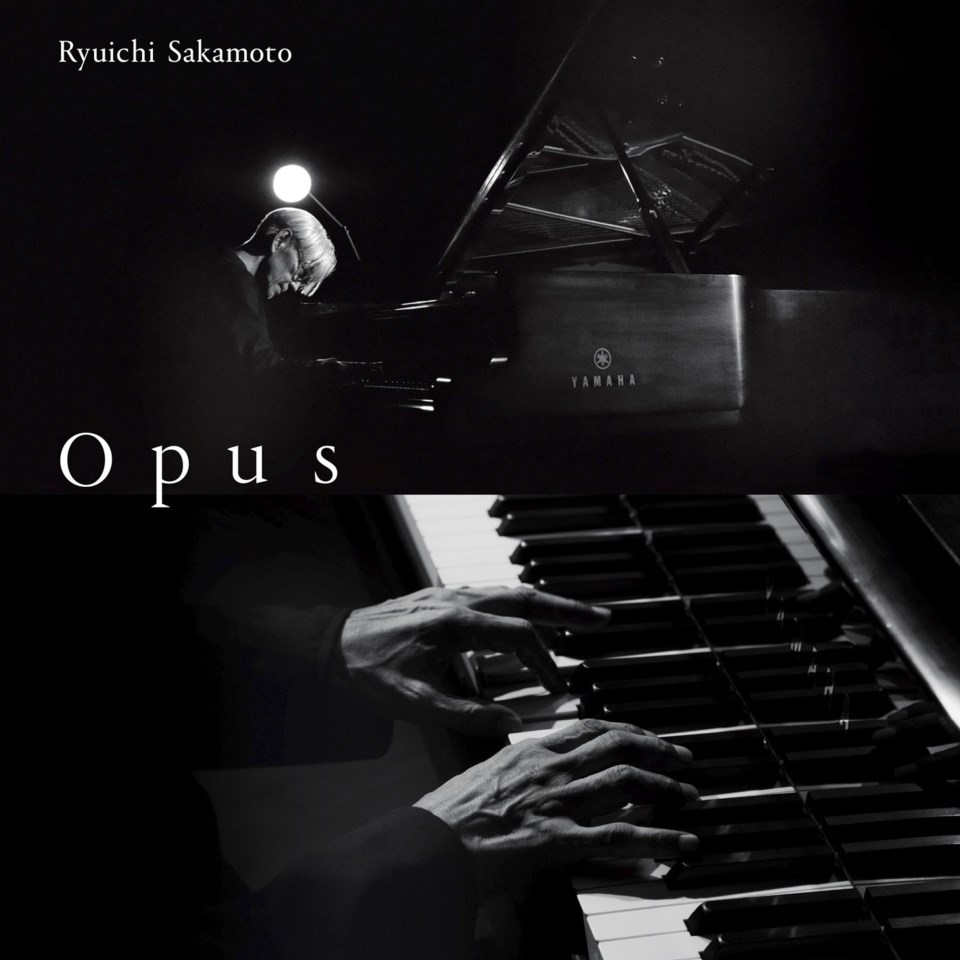TOKYO (AP) — Recorded and filmed as he was dying of cancer, Ryuichi Sakamoto’s “Opus” — the Japanese film composer's posthumous album and documentary of the same name — is clearly meant to be his final farewell.
As an album, it is fitting that the 20-song, hour-and-a-half recording of sparse piano played by Sakamoto is a retrospective, taking the listener on a journey through his half-century career.
One standout is the first-ever recorded version of the playfully lyrical “Tong Poo” from his early days with techno-pop trio Yellow Magic Orchestra, also known as YMO. They were pioneers of 1970s electronic music and a Japanese act that landed on the global stage.
The album “Opus” is set to be released Friday from Milan Records. It showcases solo piano versions of the film scores that form the pillars of Sakamoto’s legacy, starting with the majestic theme for Bernardo Bertolucci’s “The Last Emperor,” a film set in the final days of imperial China leading into its communist rule.
It won an Academy Award for best original score, making Sakamoto the first Asian to win the honor. The 1987 film, starring John Lone, also won best picture. The score also won a Grammy.
Elsewhere, the track “BB” is Sakamoto’s homage to Bertolucci, a tender love poem for his brilliant collaborator.
“Opus” also features the forlornly pensive music Sakamoto did for Bertolucci’s 1990 “The Sheltering Sky,” which juxtaposed emotionally lost American travelers with the ruthless vastness of northern Africa.
And it includes the music for “Merry Christmas Mr. Lawrence,” a 1983 film about a World War II prisoner of war camp, directed by Nagisa Oshima, in which Sakamoto also acted. It has become his signature piece.
Sakamoto's sound has an unmistakably Asian feel that's challenging to define, but evident through the utilization of certain harmonies, pentatonic motifs or scales. His sound is also evocative of Debussy but, to be fair, this is all Sakamoto.
Minimalist is another way some have described his ability to speak in the silences between the notes.
All the songs on “Opus” were immaculately recorded in Tokyo’s NHK 509 Studio, performed without an audience in 2022. The piano pedal shift, and, at times, his breathing, are present.
A poignant black-and-white documentary film by his son Neo Sora documents the recordings, spread out over a period of days because of Sakamoto’s weakening health.
This testament to Sakamoto’s music underlines an artist's commitment to his work that was there, to the very end. The tagline on the album reads: “Art is long, life is short.”
“Opus” is all about death, with segments, like the title piece that ends the album, resonating like a solemn prayer.
Sakamoto wanted to record his performance while he still could. He felt so drained after the recordings, and his condition worsened. He died on March 28, 2023, in Tokyo. He was 71.
“In some sense, while thinking of this as my last opportunity to perform, I also felt that I was able to break new ground,” he said in a statement accompanying the project.
Here is a man unafraid to face his catalog of works and give it his own personal interpretation, knowing it would be his last.
In so doing, with a quiet dignity, he reminds us not to fear death.
___
Yuri Kageyama is on X: https://twitter.com/yurikageyama
___
For more AP reviews of recent music releases, visit: https://apnews.com/hub/music-reviews
Yuri Kageyama, The Associated Press




